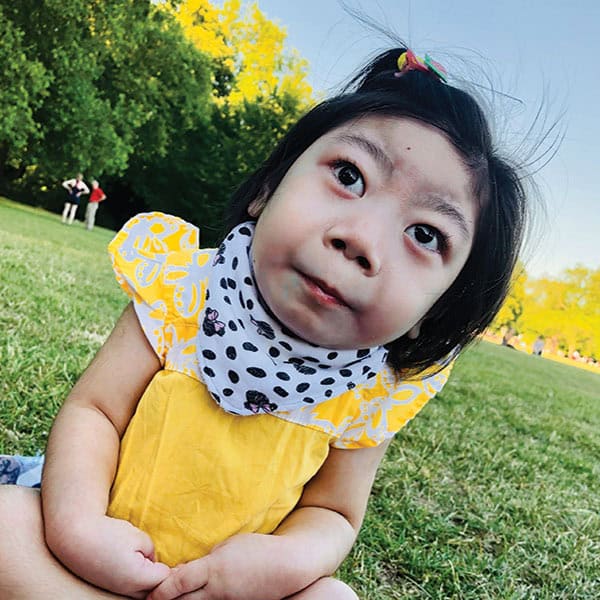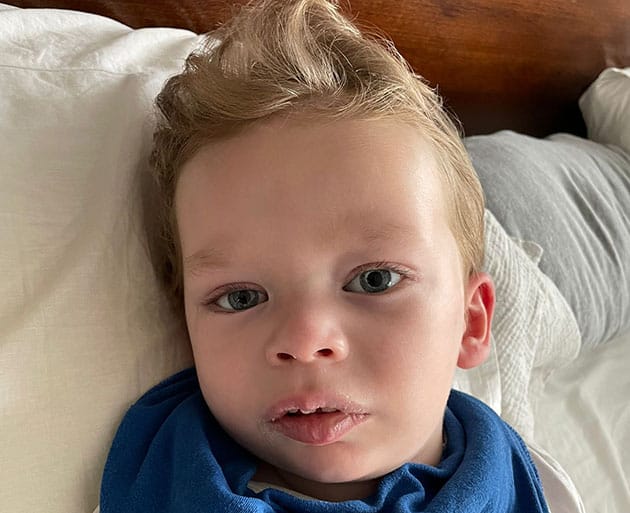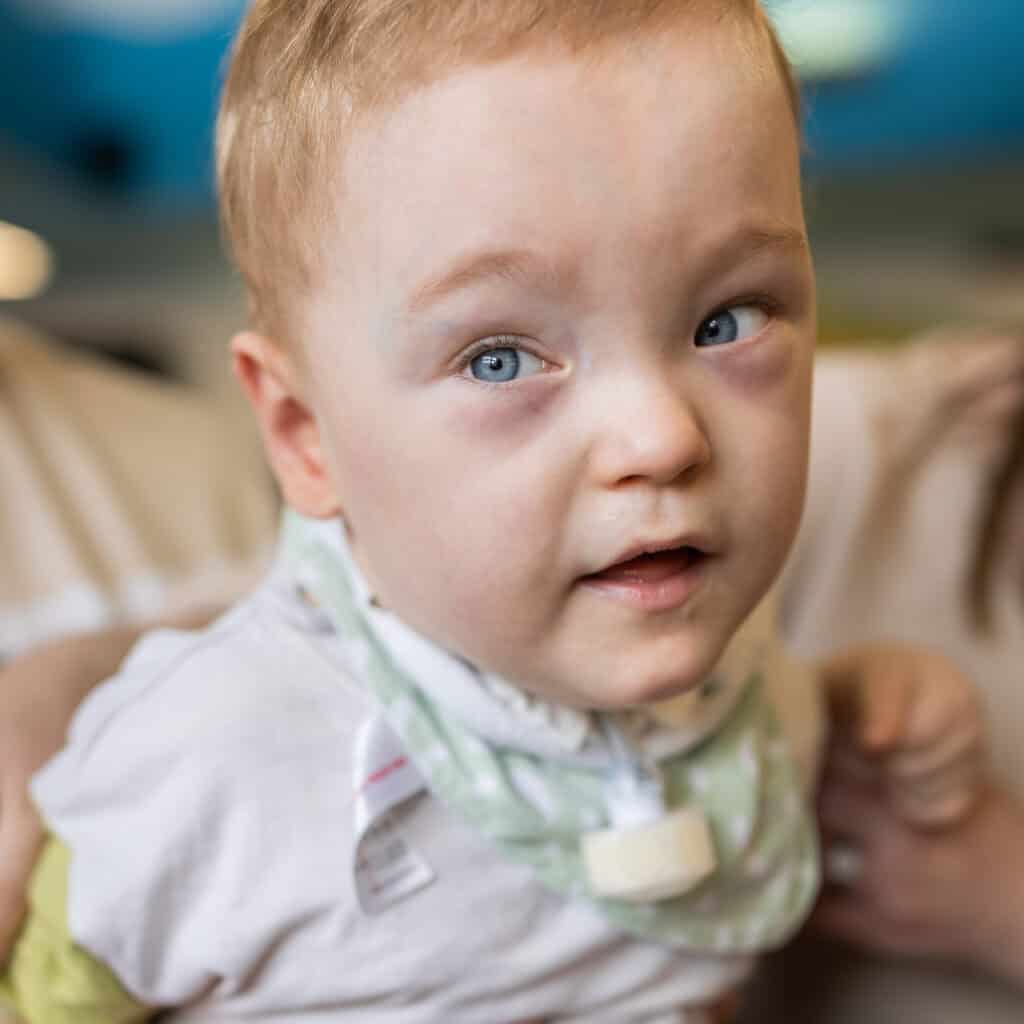Oliver’s story
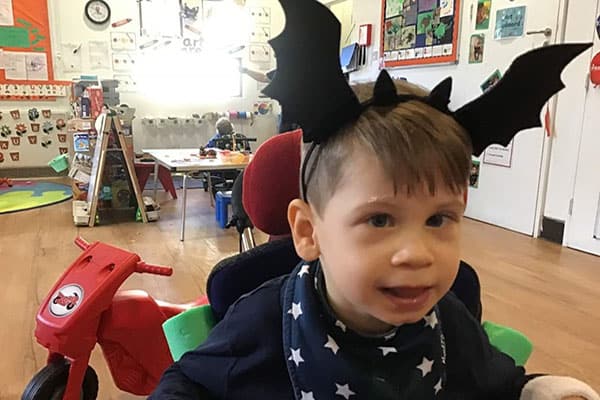
In March 2017 Oliver’s parents, Peter and Pippa received a diagnosis about their son that would change their lives.
Mum Pippa explains, “We began to notice when he was a baby that he wasn’t grabbing at things, he wasn’t sitting, and being in an NCT group I noticed all of the other babies were doing things that Oliver wasn’t, so we went to our GP to express our concerns.”
Oliver was 15 months old when his parents received his diagnosis. Dad Peter said, “Everyone, including ourselves, had thought he had cerebral palsy, but we were taken aback to hear the condition he has.” Oliver was diagnosed with lissencephaly, a rare genetic brain condition, which literally translates as ‘smooth brain.’
Peter explains, “The reason they thought it was cerebral palsy is because there are quite a lot of similarities in terms of presentation – the delayed development, epilepsy and more. But obviously this is a whole different thing – 10 in a million. As far as we’re aware he’s got a developmental age of six months to a year and that’s where he’ll stay.
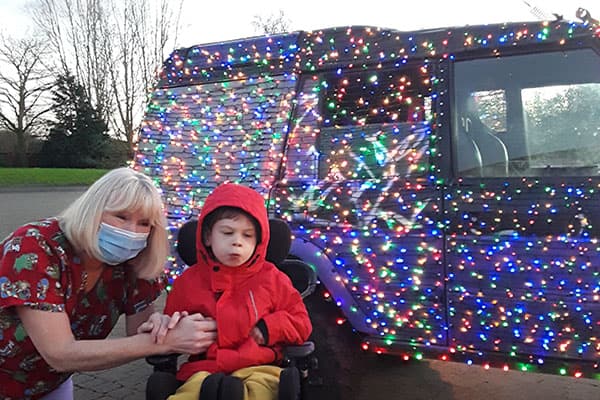
“He’ll be six this year, and he’s unable to sit or stand on his own and can’t really entertain himself to any degree. It’s very difficult to feed him, and as he could have a seizure at any time, you can never leave him. It’s constant care and having someone with him at all times,” says Peter.
Following Oliver’s diagnosis, Peter and Pippa were told about Shooting Star Children’s Hospices. Pippa says, “It was a very bad time obviously, we went into a very negative space, but things have progressed since then and looking back on it, it was just what it was.
“At the time we met with one of the care team at Shooting Star Children’s Hospices, who was really lovely, and it wasn’t a negative thing at all, it was all so positive. She took us around the hospice and explained respite and it was so nice to know that quite imminently there were people around that could help. It was a very positive experience,” says Pippa.
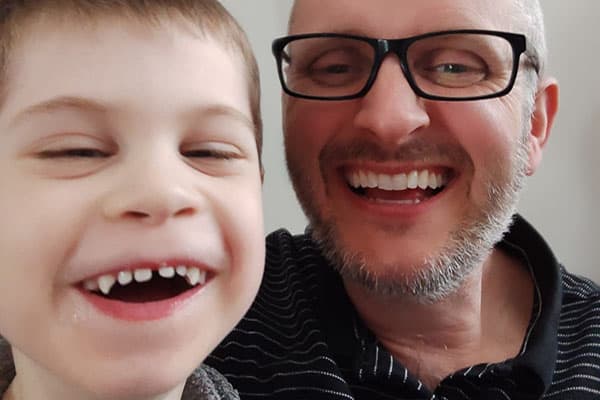
“Yes, she made it clear hospices are more then just a place children or adults go to live their last days,” says Peter.
Oliver began going to Shooting Star Children’s Hospices when he was 18 months old and since then the family have benefitted from many of the services the charity provides.
Peter says, “I’ve used the complimentary therapy service to go have a massage to try and help my aching back and we have gone on lots of the day trip events like ice skating with other families. We’ve also attended the splash days because there are so few hydrotherapy pools around so it’s a real advantage to be able to use that. Both our mums have been to one of the grandparents’ days and made some hand lotions and creams and had a chance to chat with others. However, it’s the respite support that is main thing for us.”

“We enjoyed being able to stay quite a lot at the hospice when he was younger, because we saw it as respite for ourselves as well, so as Oliver was being cared for, it was somewhere different to be apart from being at our house. I used to take my school work with me to mark, it allowed me to get things done whilst I was there – knowing Oliver was safe,” says Pippa.
“We now have a social worker, meaning we’ve got funding for respite nights, so at this point in time in Oliver’s life, we find it so beneficial to have a situation where he can be looked after fully and away from home. He wakes up four or five times every night, and has done forever, so a decent night’s sleep or a chance to go out is everything. People often say ‘oh that will give you the opportunity to relax and recharge’ but from my perspective it’s a chance for us to go out and see friends. You’re not thinking in two weeks I can have a rest because a couple of days later you’ll be tired again, but to think you can go out for a meal with friends, it’s gives us a chance to have something to look forward to,” explains Peter.
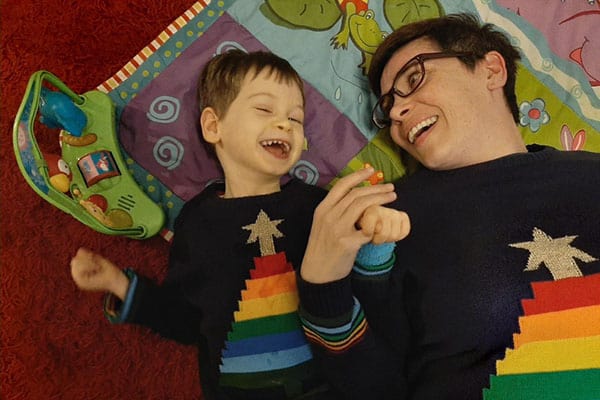
“Without Shooting Star Children’s Hospices we wouldn’t really have anyone who could look after him. I have my sister close by, but she has her own children and obviously she’d have to be happy to give emergency medication should an issue occur. Oliver’s epilepsy is multifocal, meaning he doesn’t present the same way each time he has a seizure. It’s not the classic ‘Casualty’ style seizure or convulsion on the floor, it will be different each time and change quickly. So that is a lot of responsibility to ask of someone.”
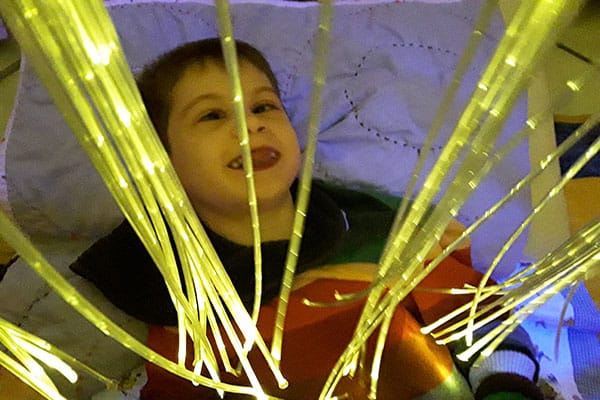
This January Oliver had a procedure to have a gastronomy, which is fitted onto his tummy to help him feed. This has meant the couple have been able to leave Oliver for a few days at a time at the hospice. “We’ve been with Shooting Star Children’s Hospices for almost three years and we’ve always stayed with him to help with his feeds, so now we’ve been able to move on from that it’s great,” says Peter.
“The hospice has all the provisions – the pool, the garden, special swings he can go on – it’s not just a room. I’m his full-time carer, which I feel isn’t as usual for a dad to be so it’s quite isolating because essentially you never see friends, meet people – it’s a full time job. So knowing we can book Oliver in and meet with a friend, or Pippa and I can go for dinner – just having something to look forward to means a lot. You know it’s hard work – every parent would say, disabled or otherwise, looking after your children at times, so when you don’t have the option for any sort of care, anything to look forward to or break that up, it’s very hard. Having Shooting Star Children’s Hospices is such a help in that sense,” says Peter.

“It’s just the assurance in knowing Oliver is being properly looked after by people who are medically trained and really care, and there is lots for him to do. They get to know him better the more he goes, knowing what he does and doesn’t like, and I think from my point of view it’s the feeling of him being safe and cared for whilst we get the respite at the same time,” says Pippa.
When you support us you are helping to provide specialist care to children like Oliver, and his family. You can help us be there for families now and into the future by donating.
